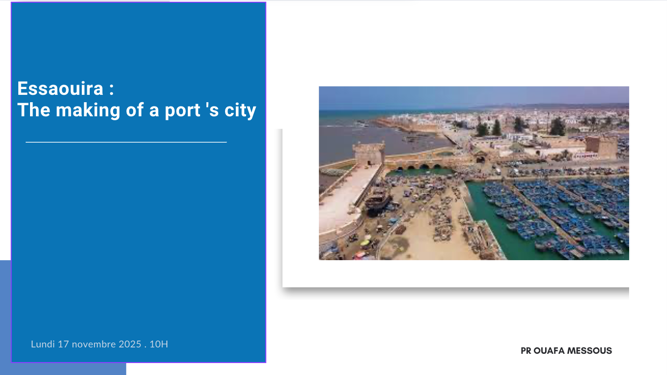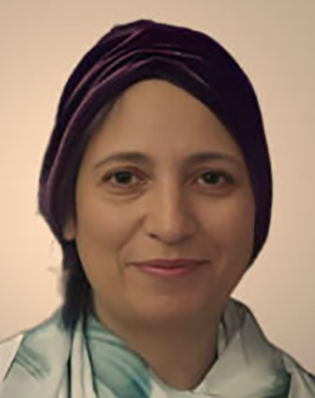CRG Seminar - Essaouira: The making of a port's city
Primary tabs
 This presentation argues that Morocco’s ports, and Essaouira/Mogador in particular, are formed within long geopolitical cycles and subsequently repositioned by national strategies, leaving durable spatial and social imprints.
This presentation argues that Morocco’s ports, and Essaouira/Mogador in particular, are formed within long geopolitical cycles and subsequently repositioned by national strategies, leaving durable spatial and social imprints.
Moroccan exchanges have historically hinged on two corridors: an inland, trans-Saharan axis running north - south and a maritime axis that expands whenever imperial configurations and naval capabilities align, periodically reshuffling port hierarchies and urban centralities (Braudel, 1972; Miller, 2013).
Against this backdrop, the case study of Essaouira revisits the hypothesis of a pre-eighteenth-century town on the site of today’s medina; current readings tend to falsify that claim, yet unresolved questions remain ; most notably the anthropomorphic graves in the Jewish cemetery and what the dune system may have concealed or erased, issues that call for joint historical, archaeological, and geomorphological inquiry (Schroeter, 1988).
At the policy scale, Essaouira’s later marginalization aligns with territorial and sectoral choices ; coastal governance, spatial planning, and the National Port Strategy 2030 ; that concentrate financial flows in specialized hubs and reassign roles to secondary sites (Kingdom of Morocco, Ministry of Equipment & Water; ANP; TMSA, n.d.).
The final part shows how resilience by image and civic action, through heritage, landscape, and cultural capital, echoes in local master planning and has supported a partial economic rebound despite structural constraints.
This seminar is organised by the CRG Africa in the World: Rethinking Africa's Connections.
Speaker
 Ouafa Messous is an architect, urban planner, and Accredited Associate Professor (Maître de conférences habilitée) at the National School of Architecture in Rabat, Morocco. She holds a PhD in Urban Planning and Governance as well as an advanced diploma in Heritage Architecture from the École de Chaillot (Paris). Her academic career bridges research, teaching, and professional practice, with expertise in urban planning, territorial governance, and heritage architecture.
Ouafa Messous is an architect, urban planner, and Accredited Associate Professor (Maître de conférences habilitée) at the National School of Architecture in Rabat, Morocco. She holds a PhD in Urban Planning and Governance as well as an advanced diploma in Heritage Architecture from the École de Chaillot (Paris). Her academic career bridges research, teaching, and professional practice, with expertise in urban planning, territorial governance, and heritage architecture.
Her current research investigates the intersections between urban governance, heritage policies, and collective memory, with a focus on port cities as cultural and political interfaces. Building on her doctoral thesis on Essaouira, she is preparing a book manuscript entitled Essaouira: The Making of a Port City. From Local Memory to Global Imaginaries. During her fellowship, she plans to expand this work comparatively, exploring how urban identities emerge at the crossroads of local histories, global infrastructures, and contemporary urban transformations.

